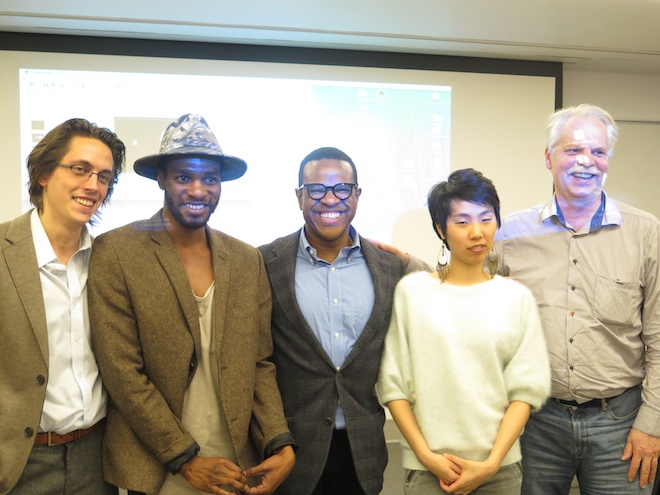
At the final presentation (L to R) Nicholas Forster, Dusty Gavin, Thomas Allen Harris, April Wen, Charles Musser
This Winter, I was invited by Rob Storr and Susan Cahan to lead a Digital Diaspora Family Reunion seminar at the Yale University School of Art. The seminar included two Yale undergrads, two grad students and a film professor. Together we embarked on an journey of discovery through their respective family photo albums and narratives from which each seminar participant chose a project to work on over the course of two months. On March 28 we held a public unveiling of these works in process — which included performance, documentary, experimental and installation projects — before a full house! The audience found the presentation and individual works very moving and we were engaged in a robust Q&A in which audience members were also inspired to seek advice around their own creative journeys through their own family/community visual narratives.
Below is some feedback from the DDFR seminar participants collected via email as well as social media. – Thomas Allen Harris

Untitled (illuminated eye) photo by April Wen
“I enrolled in the DDFR seminar knowing that I wanted to explore my mother’s story, as well as what we mean when we say “mother” and “story.” My goal as a participant in the seminar was to observe the different ways people teach the craft of storytelling – in this case, Thomas Allen Harris. For the subject matter of all our DDFR projects – family – Thomas was both critical and generous, which informed how intuitive it felt for me to embrace the shape shifting my project took over two months of DDFR. We were a multi-generational, multi-ethnic group, small and intimate. From DDFR, I learned about a creative atmosphere that is generative for my habit of working – exploratory, unbounded, transmedial. My final project culminated in a presentation of fifteen portraits of my mother, during which I spoke about the process of rethinking my relationship with her through photographs I had taken three years ago. What story arises? Is it one of motherhood? These are the questions that set me free, in that these photos hint at an illustrious and meandering voyage, but not the answers.” – April Wen
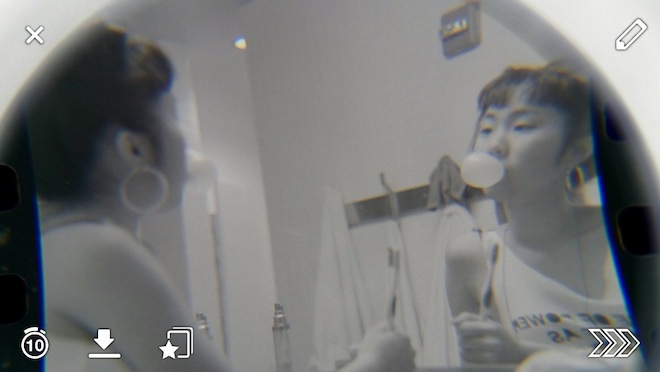
Self -Portrait, April Wen
April Wen is a junior Film and Media Studies major at Yale College. Emotionally, she is an American Studies major, and dreamily, an Art major. She was born and bred in Astoria, New York, near an abandoned warehouse, a sculpture park, and a Costco.
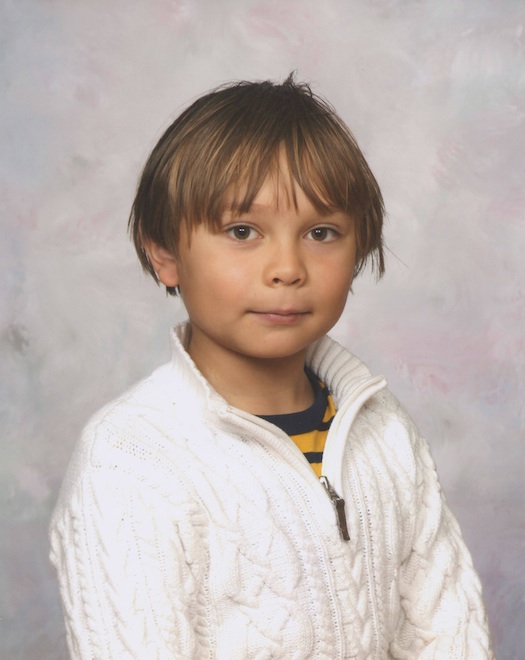
John Carlos,2ndgrade2014
“When the Digital Diaspora Family Reunion Seminar was announced, I was interested in joining for several reasons. The basic topic of the workshop spoke to me because my wife’s immediate and extended Filipino family meets on Facebook, and their posts are filled with Family photographs. Although I join in on occasion, the rest of my WASPy family systematically refuses to use it. The more I thought about it, the more I realized that my nine-year-old son John Carlos would face lots of interesting challenges when it came to constructing his family album. Perhaps he could use some fatherly assistance. Since I was on semi-leave this semester, I had more time than usual, and thought the seminar might offer the opportunity to begin work on a new documentary project of some kind. I also thought I might pick up some pointers when it comes teaching a filmmaking course. Last but not least, hanging out with Thomas Allen Harris in a classroom had considerable appeal. The process in the classroom was engaging. Our first assignment was to bring in some family photographs, but we all ended up moving in quite different directions. Beyond providing a context for thinking about these kinds of photographs and how we use them, the workshop created a series of deadlines and made me move into action in the face of lots of competing demands. Many of my photographs had stories attached to them—stories that I wanted to get on record and in some sense pass on to John Carlos but stories that could also be of interest to a larger audience. Finally the family album poses interesting questions as a genre—what is in the family album and what we exclude. What these albums show and what they conceal. I became convinced that a documentary entitled For John Carlos…(Y)our Family Album could explore these issues in ways that tied into my scholarly concerns with photography and documentary as a kind of film essay. “ – Charles Musser
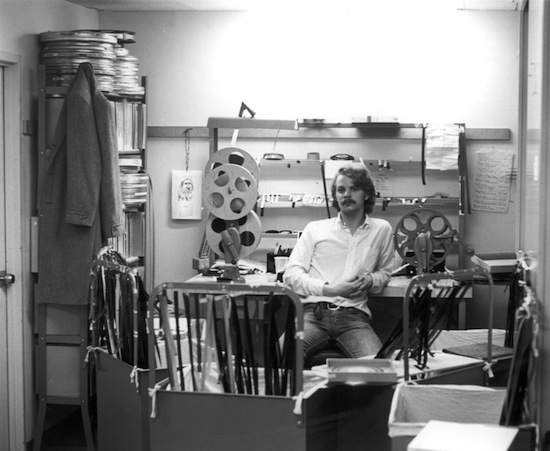
Working on Hearts & Minds (1974), Charles Musser
Charles Musser is a professor of American Studies, Film and Media Studies at Yale University. His documentary Errol Morris: A Lightning Sketch had its premiere at the Big Sky Documentary Film Festival in 2014. His book Politicking and Emergent Media: US Presidential Elections of the 1890s (University of California Press) has an October 2016 pub date.
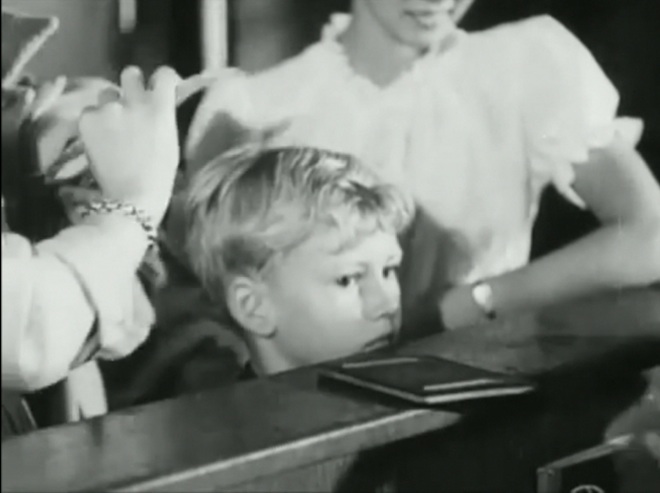
Thinking About Ken photo by Nicholas Forster
“I originally enrolled in the Digital Diaspora Family Reunion Seminar as I was hoping to participate in a workshop guided by a filmmaker whose work I admired. The call for participants was originally quite broad and suggested that this was to be a space where individuals could work on poetry, visual art, film, painting, photography or some kind of conceptual project. The breadth of this call is what I found especially inviting as I had been working on some writings that I felt somewhere between uncomfortable with and eager to share. The idea of working with various participants who I could learn from and that I had no relation to beforehand was exciting. For the first class we were encouraged to bring about 12-15 family photos with us. I was interested in questions of familial mythmaking so I reached out to my Dad (who moved here from the UK). He sent a few photos. While his father (my grandfather) had died when I was eight years old, it was only later in life that I learned that my grandfather had undergone facial reconstruction surgery resulting from an accident which also took his leg. The accident happened in the late 1940s and I had never seen any photos of my grandfather prior to this surgery. In recent years my father had been watching British war footage and recognized his father. Upon seeing this footage my father showed it to me, but had to explain that this was my grandfather. This story became part of the foundation for the project, which was fundamentally about this odd experience of never having seen my grandfather’s face prior to his motorcycle crash. So in this way the project also became about national and personal archives.”– Nicholas Forster

Nicholas Forster
Nicholas Forster is a PhD candidate in African American Studies and Film and Media Studies at Yale University. Nicholas completed a BS in Film and Television from Boston University’s College of Communication in 2011. After receiving his degree, he was an AmeriCorps Urban Fellow at the Phoenix Charter Academy (PCA), an alternative charter school in Chelsea, MA. At PCA, Nicholas co-taught classes in English and World History, created promotional videos, and worked directly to engage students in works of philosophy, literature and film. His work at PCA is part of his broader interest in extending educational opportunities to students who, for a variety of reasons, have often not had access to school.
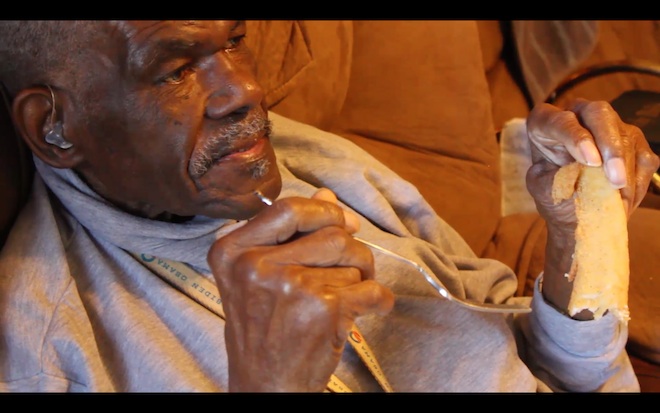
Tracing Tradition photo by Dusty Gavin
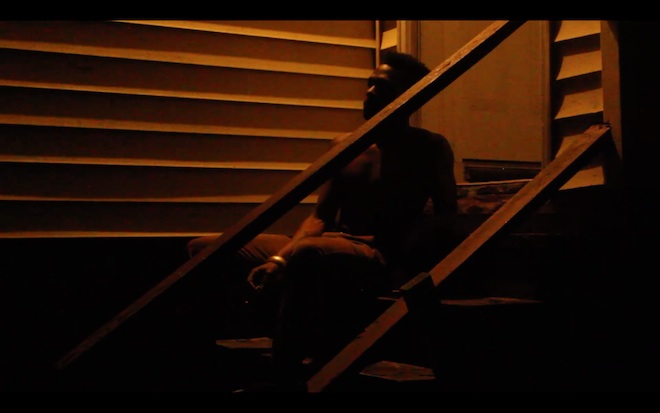
Self portrait, Dusty Gavin
Dustin Gavin is a MA candidate in Religion and Film at Yale Divinity School and the Institute of Sacred Music. He holds a B.A. in Journalism from Howard University and an MA in Media Studies and Film from The New School. In exploring the synthesis of race and gender in American religious history, he intends to further inform notions of the Black queer [religious] experience in America by creating digital works which provoke in-depth social commentary that complicate the effects and affects of that lived experience. With a preoccupation in both narrative and non-narrative storytelling, it is Dustin’s belief that media has a responsibility to tell compelling stories, foster education, and provide insight to the world around us.
No comments yet.